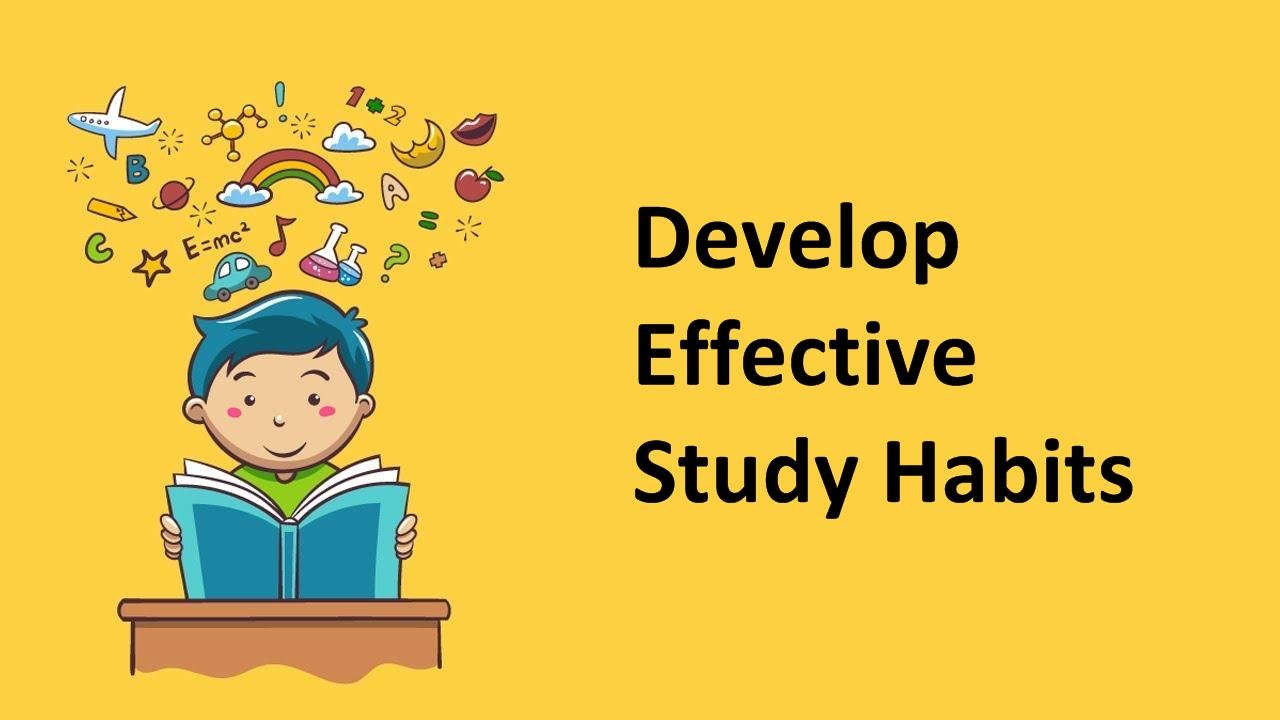Developing Effective Study Habits: Building a Foundation for Academic Excellence

Developing Effective Study Habits: Building a Foundation for Academic Excellence. Learn how to cultivate efficient study practices, overcome challenges, and embrace a growth mindset. Boost academic performance, reduce stress, and unlock lifelong learning opportunities. Discover the key to a successful future!
When it comes to excelling academically, having effective study habits is key. Students who cultivate proper study habits not only perform better in exams but also develop essential skills that last a lifetime. In this article, we will explore what study habits are, why they are vital for academic success, and how students can develop and maintain these habits to build a strong foundation for excellence in their academic journey.
Read More: Creating a Study Environment: Optimal Settings for Enhanced Learning
Understanding Study Habits
What are study habits?
Study habits refer to the routines, techniques, and practices that students use to learn and retain information effectively. These habits can significantly impact a student’s ability to comprehend and apply knowledge gained in the classroom.
Why are they important?
Developing good study habits is essential because they enhance a student’s learning experience and improve their overall academic performance. Effective study habits enable students to grasp complex concepts, solve problems efficiently, and develop critical thinking skills.
Identifying Ineffective Study Habits
Common mistakes students make
Many students unknowingly fall into the trap of poor study habits that hinder their academic progress. Some common mistakes include:
Cramming: Waiting until the last minute to study, leads to shallow understanding and forgetfulness.
Multitasking: Attempting to study while engaging in distracting activities, resulting in reduced focus and retention.
Skipping breaks: Overworking without taking breaks can lead to burnout and decreased productivity.
Consequences of poor study habits
Students who adopt ineffective study habits may experience:
Low Academic Performance: One of the most immediate and obvious consequences of poor study habits is reflected in a student’s grades. Without effective study practices, students may struggle to understand and retain the material taught in class, leading to lower test scores and academic achievements.
Increased Stress and Anxiety: Students with poor study habits often find themselves cramming for exams or rushing to complete assignments at the last minute. This can create immense stress and anxiety, as they feel unprepared and overwhelmed by the workload.
Inefficient Time Management: Poor study habits can lead to inefficient time management. Students may spend excessive time on less critical tasks or get easily distracted during study sessions, leaving them with insufficient time to cover all the necessary material adequately.
Lack of Confidence: Continuously performing poorly due to inadequate study habits can erode a student’s confidence in their academic abilities. This lack of self-assurance may further hinder their motivation to improve and succeed.
Difficulty in Problem-Solving: Effective study habits help students develop critical thinking and problem-solving skills. Without these habits, students may struggle to apply their knowledge to real-world situations or complex academic challenges.
Developing Effective Study Habits
To build a solid foundation for academic excellence, students should adopt the following effective study habits:
Set clear goals
Having specific and achievable academic goals provides direction and motivation for effective studying. Students should outline short-term and long-term objectives to track their progress.
Create a conducive study environment
A well-organized and quiet study space can significantly impact concentration and learning. Minimize distractions and create a space that fosters focus and productivity.
Manage time efficiently
Time management is crucial for balancing study sessions with other activities. Creating a study schedule and adhering to it helps students make the most of their time.
Active learning techniques
Engage in active learning methods such as summarizing content in your own words, teaching concepts to others, and participating in group discussions.
Take breaks and practice self-care
Regular breaks during study sessions prevent mental fatigue and enhance memory retention. Additionally, taking care of physical and emotional well-being is vital for optimal academic performance.
Collaborate and seek help when needed
Working with peers and seeking assistance from teachers or tutors can provide valuable insights and support in challenging subjects.
Review and revise regularly
Revisiting previously learned material at regular intervals reinforces understanding and aids long-term retention.
Stay consistent and disciplined
Consistency is key to developing strong study habits. Commit to a routine and stay disciplined in following through with your study plan.
Overcoming Challenges in Building Study Habits
Procrastination
Procrastination can hinder academic progress. Combat it by breaking tasks into smaller, manageable parts and setting deadlines for each.
Distractions
Identify and eliminate distractions during study sessions to maintain focus. Turn off unnecessary electronic devices and designate specific times for breaks.
Lack of motivation
Set meaningful rewards for achieving study goals to boost motivation and maintain enthusiasm for learning.
Stress and burnout
Practice stress-relief techniques like mindfulness exercises, physical activity, or hobbies to combat burnout and maintain mental well-being.
Measuring and Tracking Progress
Self-assessment
Regularly assess your study habits and progress to identify areas that need improvement.
Seek feedback from teachers and peers
Feedback from educators and classmates can provide valuable insights and help refine study strategies.
Make adjustments as needed
Be open to adapting your study habits to suit your individual learning style and needs.
Cultivating a Growth Mindset
Embrace failures as learning opportunities and believe in your ability to improve through dedication and effort.
Benefits of Effective Study Habits
Developing effective study habits yields various benefits, including:
Improved academic performance: Students who study efficiently achieve higher grades and perform better in exams.
Reduced stress and anxiety: Effective study habits promote a sense of preparedness and confidence, reducing stress levels.
Long-term success in learning: Developing strong study habits equips students with skills that extend beyond the classroom, leading to lifelong learning.
Read More: Effective Study Groups: Collaborative Learning for Better Results
Conclusion
Building effective study habits is essential for academic success and personal growth. By setting clear goals, creating conducive environments, managing time efficiently, and staying consistent, students can pave the way for excellence in their academic journey. Remember, the journey to academic excellence begins with cultivating strong study habits.
FAQs
How long does it take to develop effective study habits?
Developing study habits varies from person to person, but with consistent effort, it usually takes a few weeks to a few months.
Is it better to study alone or in groups?
Both approaches have benefits. Studying alone allows for individual focus, while group study facilitates discussion and sharing of ideas.
What are some effective ways to take breaks during study sessions?
Engage in physical activities, listen to music, or practice relaxation techniques during breaks.
Can effective study habits help in other areas of life?
Yes, effective study habits often translate into better time management and organizational skills in various aspects of life.
How can I stay motivated when studying challenging subjects?
Set small milestones, seek support from teachers or peers, and remind yourself of the long-term benefits of learning the subject.








One Comment